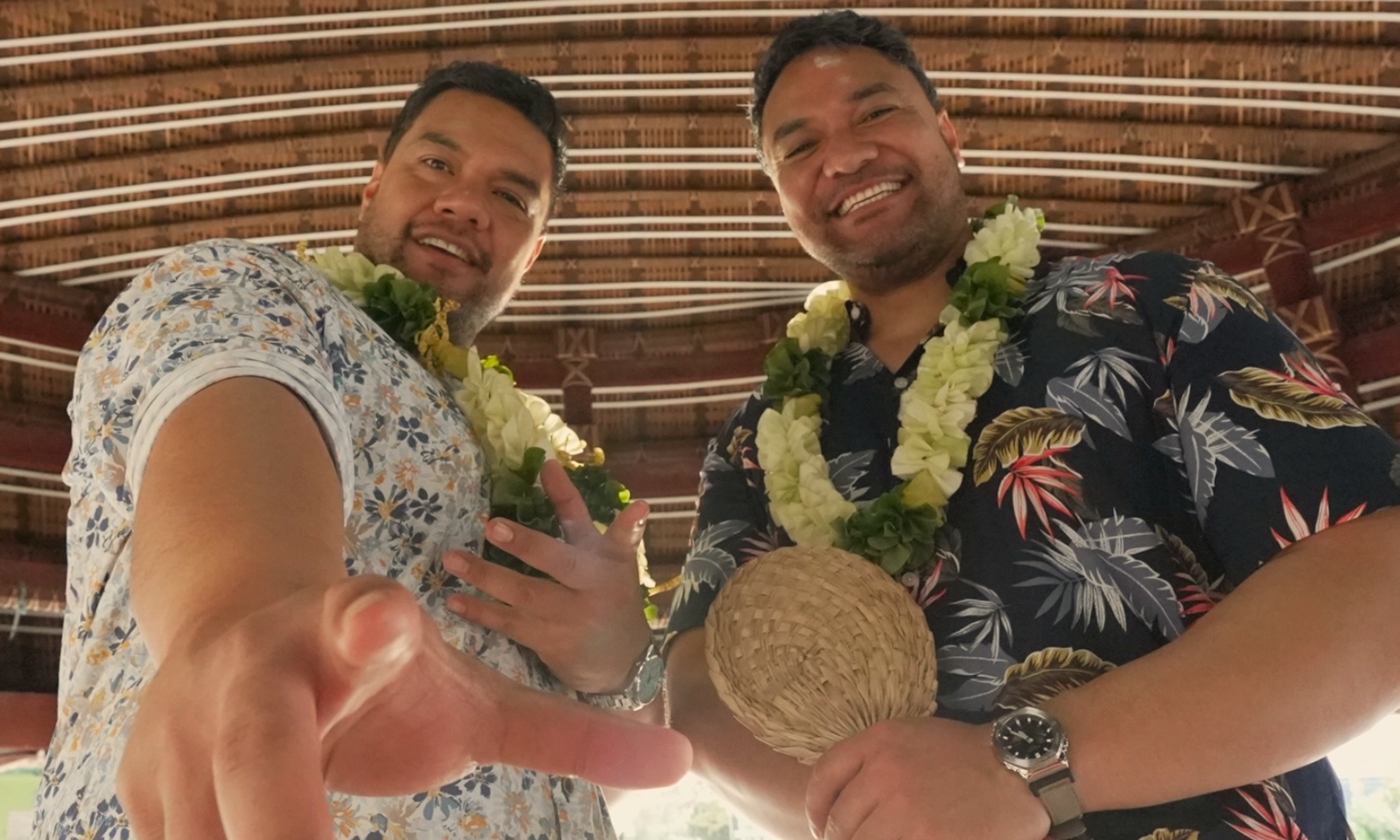
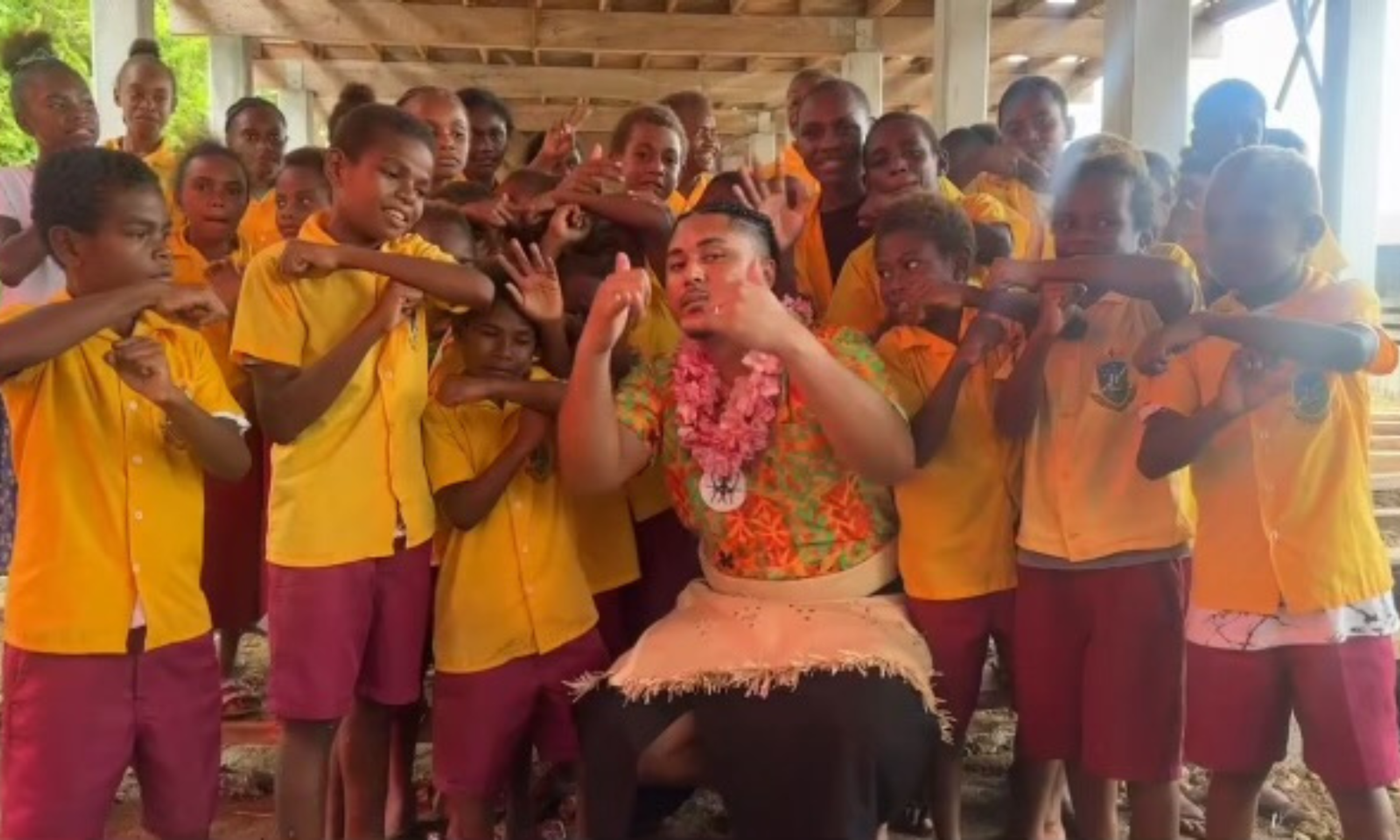
JP Foliaki has used his winnings from Celebrity Treasure Island to support clean water projects in the Solomon Islands.
Photo/Supplied
From reality TV to real change: JP Foliaki helps bring clean water to villages in Solomon Is
The Tongan’s Celebrity Treasure Island winnings are now funding a project to provide over 3000 people access to safe drinking water.


Realm relations in focus as Tokelau-NZ marks 100-year history

‘One of our most trusted leaders’: Tributes flow for a beloved rangatira
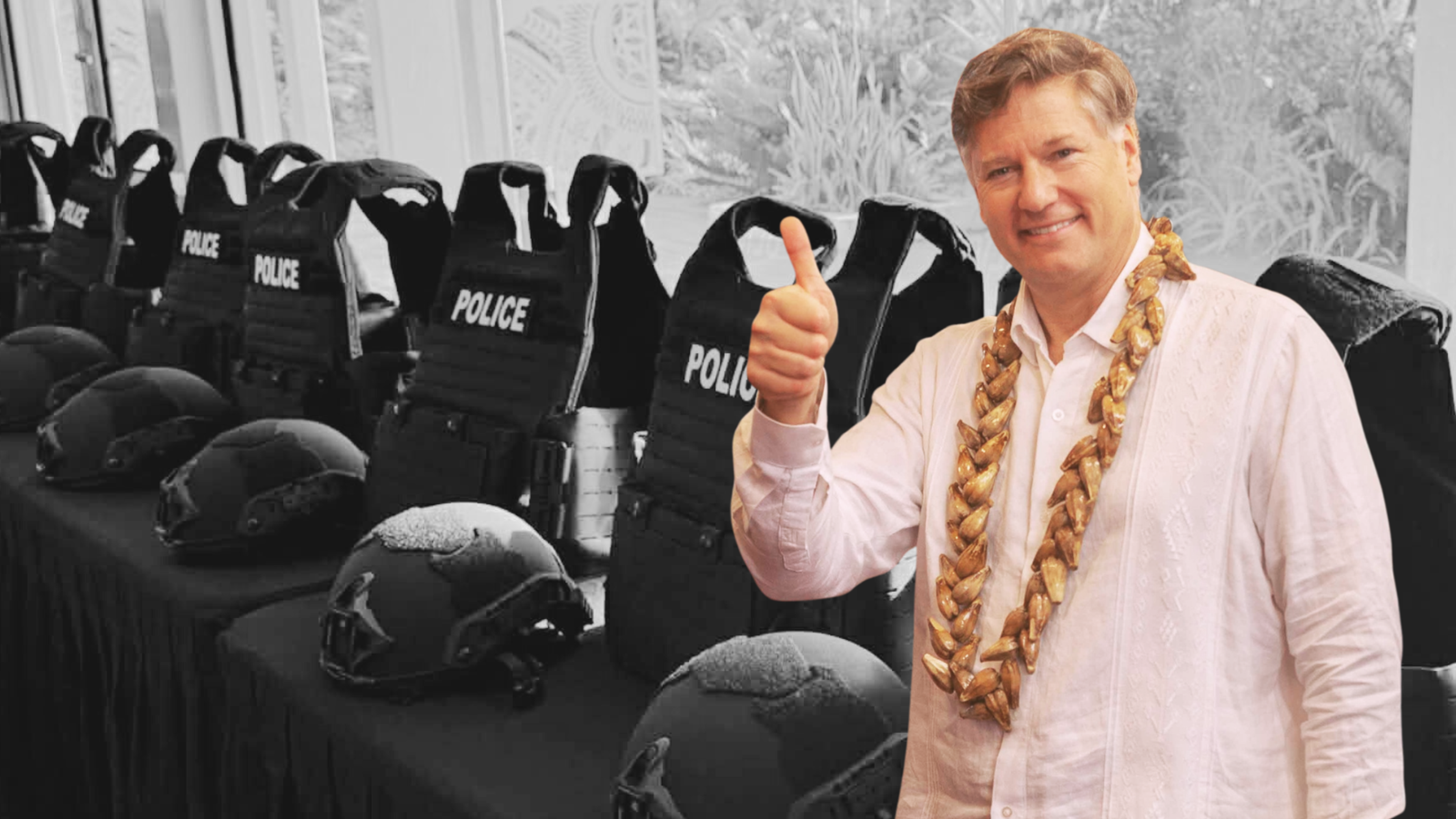

The Sāmoan Tenor named Pati who turned disadvantage into an operatic destiny

Realm relations in focus as Tokelau-NZ marks 100-year history

‘One of our most trusted leaders’: Tributes flow for a beloved rangatira

Mothers in parts of the Solomon Islands walk four kilometres every day just to fill a few bottles of drinking water - a routine that is finally set to change, thanks to John Paul “JP” Foliaki’s Celebrity Treasure Island win.
When the Tongan actor and musician travelled to Temotu Province last month, he saw firsthand how long the wait for clean water has been.
He tells William Terite on Pacific Mornings that some villages haven’t had a working water system for 20 years, forcing families to walk daily to a spring and children to miss school because of illness or the time spent collecting water.
Foliaki’s $110,000 prizemoney, together with donations from New Zealand’s Ministry of Foreign Affairs and Trade, will fund a clean water system for 18 villages in the Solomons.
The initiative will also bring safe drinking water to more than 3000 people for the first time in decades.
Foliaki says going to the remote eastern islands of Temotu Province was a “life-changing experience”. He met villagers where the new water system will be installed and shared.
Watch JP Foliaki's full interview below.
“They have to walk about four kilometres just to get to the Nembo spring. Mothers and their children carrying multiple bottles of water, 1.5 litres and up, are going to get fresh water and walking all the way back to their villages.
“One person that was over there said that they had been praying for so long for an opportunity like this, where they could have access to clean water or for someone to come and help them do this.
“It was a life-changing trip and it allowed me to reflect and remind myself to be grateful for what I have. It’s crazy to think about how much water we use on the daily, we just turn on the tap, we get to wash our clothes, wash our dishes and drink clean, fresh water.”
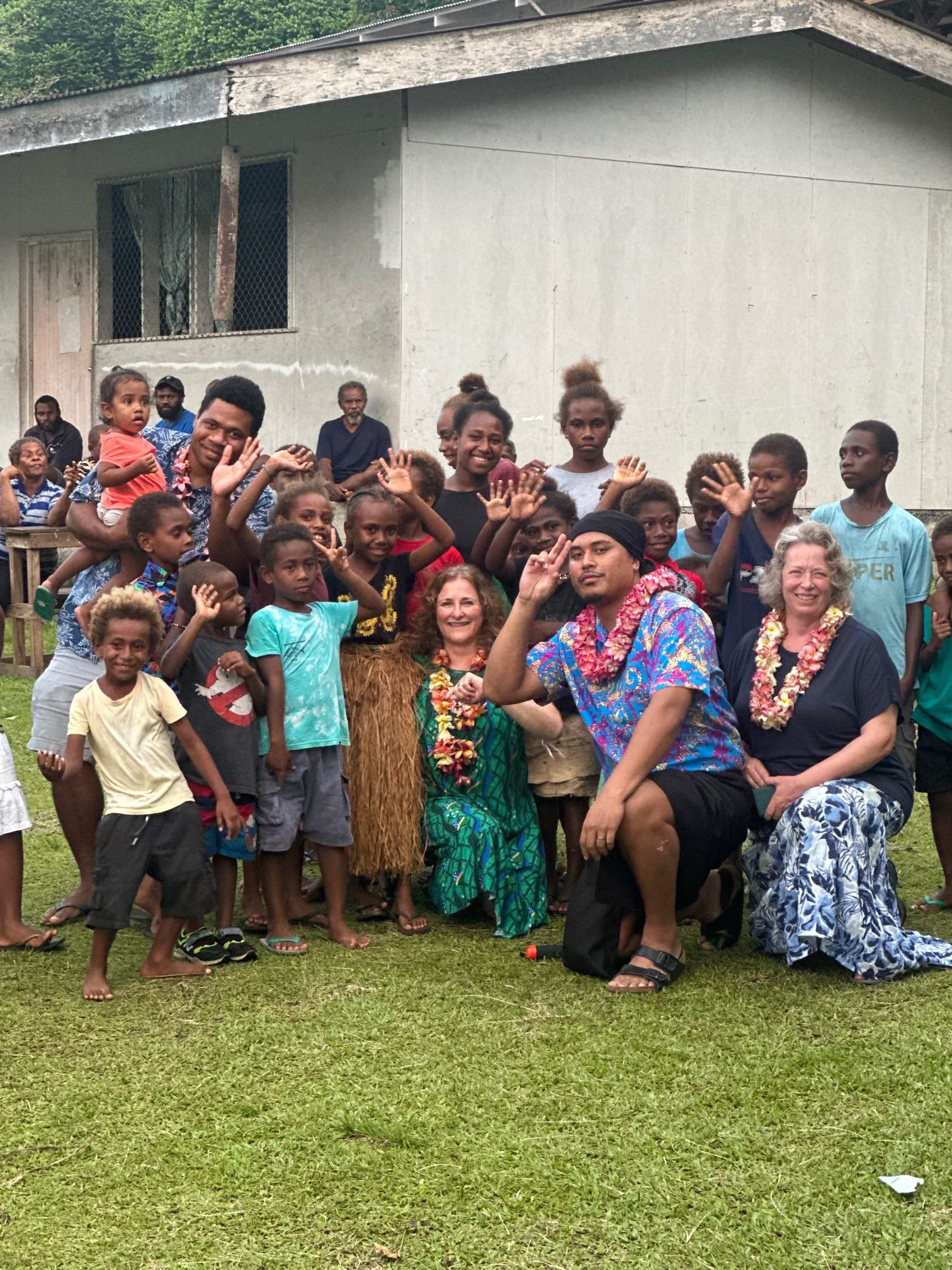
In the Solomon Islands' Temotu Province, most villagers do not have access to clean water. Photo/Supplied
The water pump and pipes are expected to arrive before Christmas, with the taps to be functioning in all 18 villages by April, 2026.
Community and culturally-led solutions
Foliaki has links to the Tongan villages of Ma’ufanga, Fasi, Falevai, and ‘Utungake, and says his heritage shapes the way he wants to give to others.
He says his grandparents and parents led a “life of service”, and that influenced how he wants to give back. “When it came to choosing a charity, I wanted one that served our people, was hands-on, but also allowed the community to lead, which is something I grew up seeing with my parents and grandparents.”
Foliaki says there is some distrust in local communities towards charities and non-government organisations “trying to be the saviour”, without ongoing community engagement. He adds that the impact of abandoned charity projects is evidence of this issue.
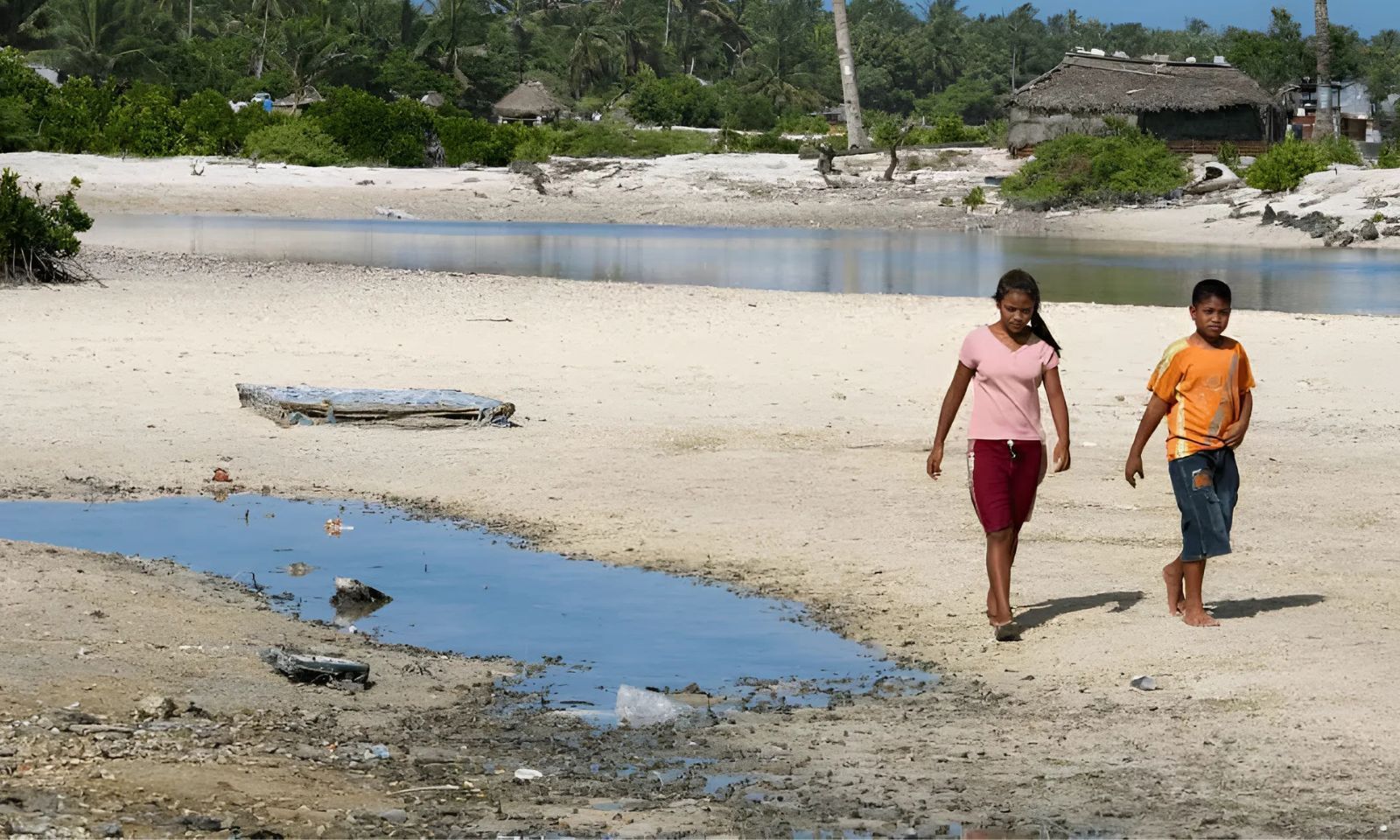
Water in Kiribati can be contaminated by salt water due to rising sea levels. Photo/File
“These villages actually had access 20 or so years ago to water … but that water system broke and I'm not too sure who the provider was or the aid organisation that set that up, but no one came in to fix that.
“So there's a whole generation of children that don't know what it's like to have access to water, but their parents do and they remember that.”
A wider issue
According to Josie Pagani, campaign director of ChildFund New Zealand, the clean water crisis is widespread across the Pacific, especially on remote islands.
“Some communities have no running water at all. Kids can’t wash their hands or drink clean water at school. It’s shocking because it’s entirely preventable,” she tells Terite.
Listen to Josie Pagani's full interview below.
In countries like Kiribati, water is often contaminated with salt due to rising sea levels. Pagani says desalination units can turn saltwater into clean drinking water and highlights other practical, cost-effective solutions.
“Sometimes it’s just fixing an old pump or installing a solar system. A Solvatten unit is like a jerry can. It opens like a book and the sun purifies the water inside. It costs about $250 and gives a family at least 10 litres of clean drinking water for years. It’s simple, but it changes everything.”
Foliaki hopes his visit will inspire others to take action. “There’s a bigger puzzle, and every piece counts,” he says. “Using the gifts God has given me to give back feels natural. It’s about serving our extended Pacific family and letting communities lead their own development.”